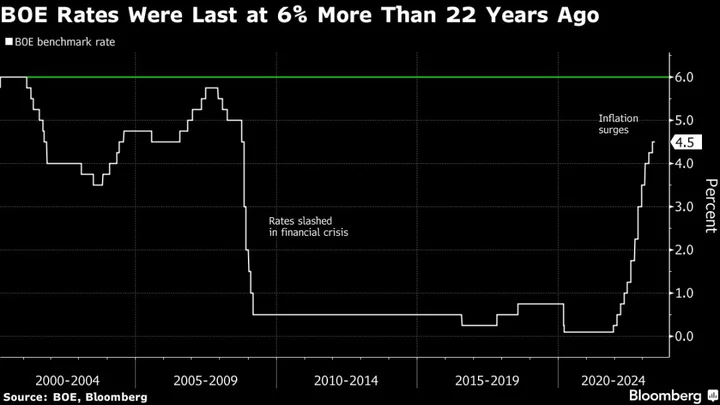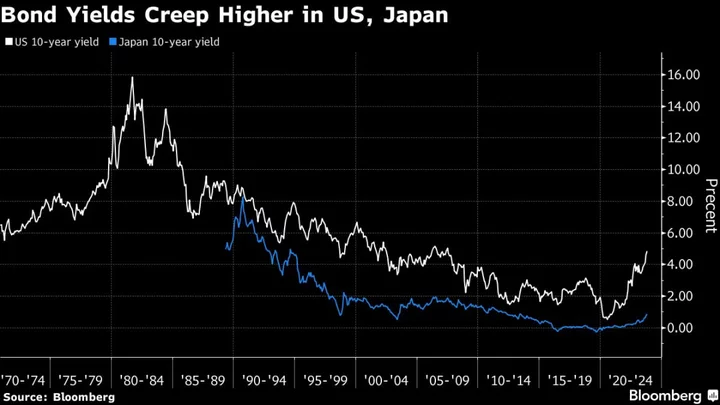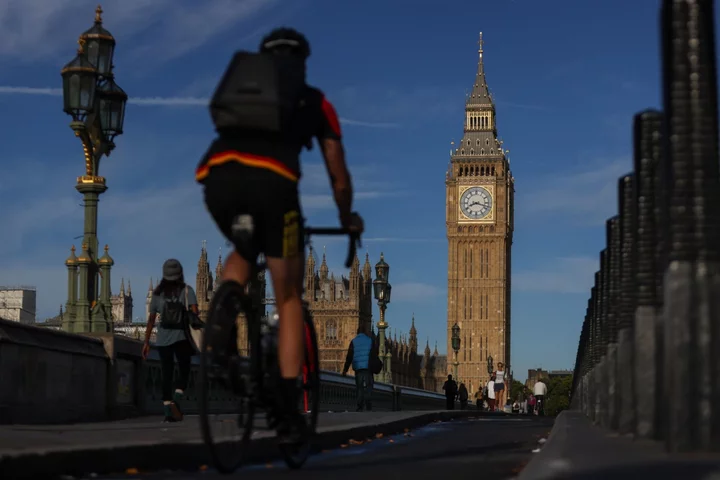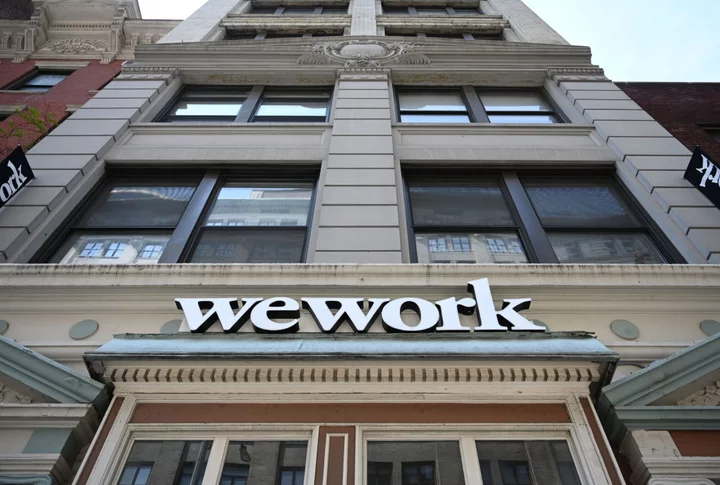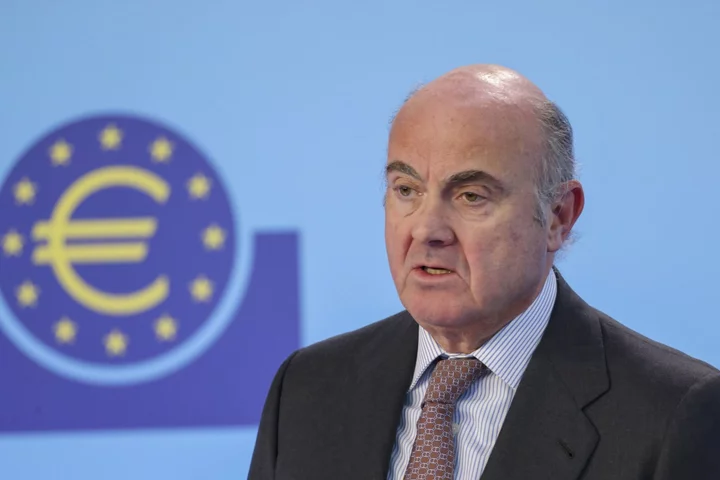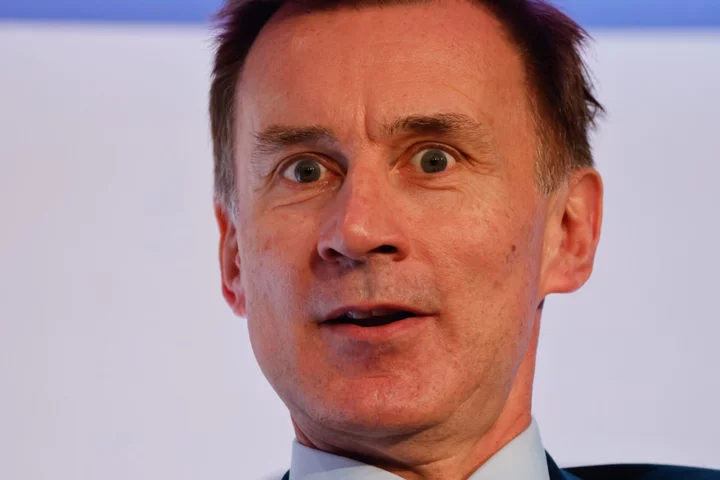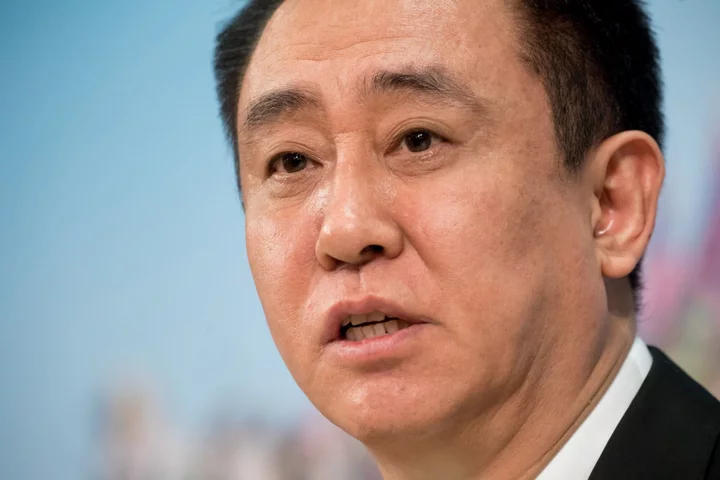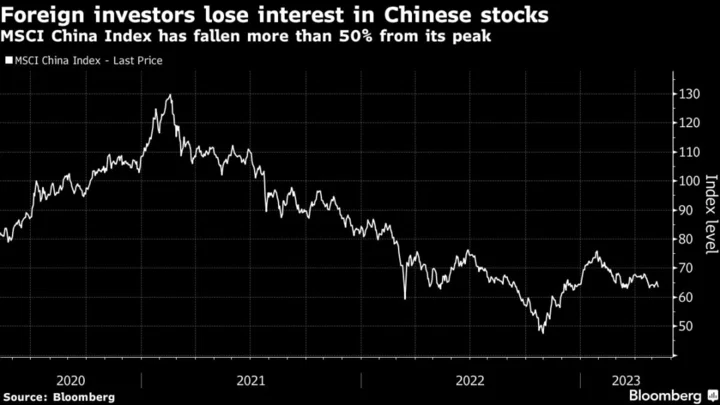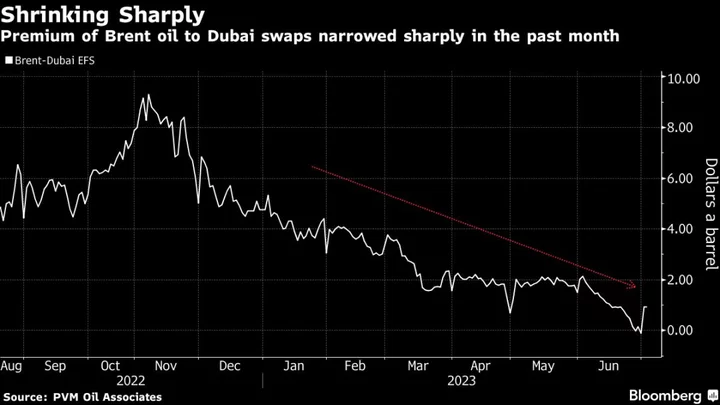UK Prime Minister Rishi Sunak faces a bruising week, with a vote on his predecessor Boris Johnson threatening to fuel divisions in the ruling Conservative Party and the Bank of England set to heap further pain on consumers by raising interest rates again.
On Monday, the House of Commons is due to vote on a damning report that found Johnson deliberately and repeatedly misled Parliament over the “Partygate” scandal. Many Conservative lawmakers are expected to abstain, fearing a backlash from party members and voters who remain loyal to the former prime minister.
It’s just one of multiple problems confronting Sunak, whose party trails the Labour opposition by double digits in opinion polls ahead of a general election due by January 2025 but expected to be held next year.
That list lengthened over the weekend, with the resignation of another Conservative lawmaker potentially creating a fourth special election and the emergence of a video showing Conservative staffers holding a party in 2020 when lockdown rules were in place. In broadcast interviews Sunday, Levelling Up Secretary Michael Gove branded the video revelations in the Mirror newspaper “indefensible” and issued an unreserved apology.
However, the cabinet minister said he planned to abstain in the vote on the Privileges Committee report into whether Johnson misled Parliament over breaches of lockdown rules at Downing Street, saying its proposal to suspend the former premier from the House of Commons for 90 days was too harsh. Johnson pre-empted the report by resigning as an MP last week. He then urged his supporters at Westminster not to vote against the report, possibly to avoid a humiliating show of how many people are prepared to support him.
The report could be adopted without a formal vote. That would be a relief for Sunak, who has to choose whether to back the committee — risking the anger of Johnson supporters — or skip the vote altogether and face accusations of weakness and undermining standards in public life.
With the resignations of Johnson and his ally Nigel Adams, the Tories are facing two special elections on July 20, both of which national polling suggest they could lose. Another ally, Nadine Dorries, would trigger a third if she follows through on her plan to quit.
Election Headache
Over the weekend, another Conservative MP, David Warburton, announced he was resigning, claiming he was denied a fair hearing by a parliamentary watchdog investigating misconduct allegations against him. That opens up a fresh by-election headache for Sunak in the run-up to the annual party conference in the fall.
Warburton held the seat of Somerton and Frome in southwest England with a comfortable majority at the 2019 general election. Prior to 2015, however, it was held by the Liberal Democrats.
The political dramas engulfing Sunak come amid a growing mortgage crisis in the UK, as homeowners bear the brunt of Bank of England efforts to tame an inflation rate running at over four times the 2% target. According to the Resolution Foundation think tank, people refinancing home loans next year will pay an average of £2,900 ($3,720) a year more from 2024, delivering a massive blow to family budgets just as Sunak is gearing up for a general election.
The government has ruled out subsidies for mortgage payments, as that would further drive up the national debt and fuel upward pressure on borrowing costs.
The BOE has raised interest rates from near zero at the end of 2021 to 4.5%. A further hike to 4.75% on Thursday is forecast, and possibly more if inflation figures on Wednesday once again prove stronger than forecast. Markets are pricing in the possibility of 6% next year, a level not seen for more than two decades.
“How much higher they have to go is open,” Charles Bean, a former deputy governor of the BOE, told Sophy Ridge On Sunday on Sky News. “Obviously the markets are expecting significantly higher rates, not too far short of 6% and I wouldn’t rule that out, but it’s not necessarily baked in by any means.”

